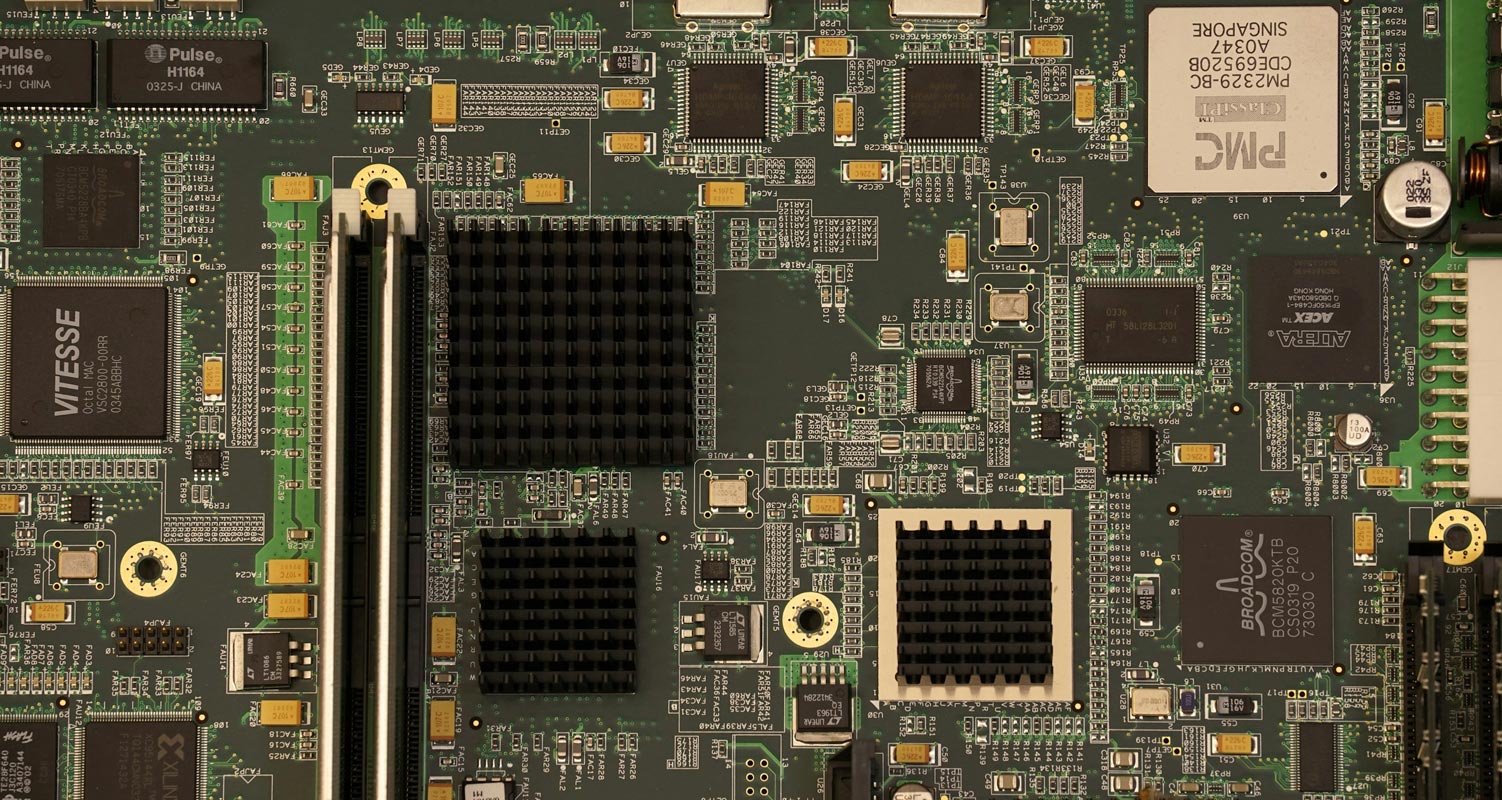ARM has issued a 60-day notice to Qualcomm in significant development for the semiconductor industry, signaling the termination of its chip design license. This move could drastically impact Qualcomm’s chipset development for smartphones, laptops, and the automotive sector. Qualcomm, one of ARM’s largest clients, is now at a critical crossroads, facing the potential loss of a foundational piece of its technology stack. This article will delve into the background of this dispute, explore the possible ramifications for both companies and the broader technology ecosystem, and provide insights into how Qualcomm might navigate these challenging waters.
The Legal Battle Between ARM and Qualcomm
This conflict’s origins can be traced back to a 2022 lawsuit filed by ARM against Qualcomm. ARM alleged that Qualcomm violated its contract by developing custom Phoenix cores without proper authorization, leading to a breach of contract and trademark infringement. The lawsuit marked a significant turning point in the companies’ longstanding relationship, which had previously been built on mutual reliance.
Qualcomm’s Phoenix cores were part of a larger strategy to develop custom cores diverging from ARM’s standard designs. ARM, however, claimed that this approach infringed upon its intellectual property rights, sparking a legal battle that has now escalated to the point that ARM is deciding to strip Qualcomm of its chip design license.
Qualcomm’s Dependence on ARM’s Architecture
Qualcomm has been one of ARM’s most significant clients for years. It heavily relies on ARM’s instruction set architecture (ISA) to develop its processors. The ISA is crucial because it defines how software and hardware communicate, enabling Qualcomm to build chips that power various devices, from smartphones to cars.
While newer Qualcomm CPUs like Oryon have shifted away from using ARM’s cores, they still rely on ARM’s ISA. This dependency makes the potential loss of the ARM license a critical challenge for Qualcomm, as it will need to either negotiate a new agreement or rapidly pivot to alternative architectures.
How ARM’s Move Could Disrupt Qualcomm’s Plans?
Terminating Qualcomm’s chip design license could have far-reaching consequences for the company’s future product roadmap. Qualcomm has been a major player in the mobile chipset industry, supplying processors for some of the world’s leading smartphone brands. Losing access to ARM’s architecture would force Qualcomm to reconsider its chipset designs and potentially cause delays in product launches.
In addition to mobile devices, Qualcomm’s ambitions in the automotive and laptop markets could also be affected. The company has been working on expanding its reach beyond smartphones, aiming to bring powerful, energy-efficient processors to a broader range of devices. The loss of ARM’s architecture could slow down this expansion and leave Qualcomm scrambling for alternatives.
The Impact on the Broader Semiconductor Industry
ARM’s decision to cut ties with Qualcomm could also ripple through the semiconductor ecosystem. Qualcomm’s dominance in the smartphone processor market has made it a key player in shaping industry trends. Any disruption to its chipset development process could impact device manufacturers and consumers downstream.
Moreover, the broader tech industry is watching closely as this dispute unfolds. The outcome of the legal battle could set a precedent for how intellectual property disputes are handled between large technology companies, particularly in the semiconductor space, where innovation and proprietary designs are crucial for competitive advantage.
Qualcomm’s Potential Next Steps
Qualcomm is unlikely to sit idle as it faces the potential loss of its chip design license. Several strategies could be on the table as the company looks to mitigate the damage:
- Out-of-Court Settlement
There is speculation that Qualcomm and ARM may reach an out-of-court settlement before the dispute goes to trial in Delaware this December. Settlements often serve as a way for both parties to avoid prolonged legal battles and reach a mutually beneficial agreement. Given Qualcomm’s significant reliance on ARM’s technology, a settlement might be the most pragmatic solution.
- Transition to Alternative Architectures
Qualcomm may need to accelerate its transition to alternative chip architectures if a settlement is not reached. The company could explore options like RISC-V, an open-source instruction set gaining traction in the industry. While transitioning to RISC-V would be a massive undertaking, it could provide Qualcomm with a viable long-term solution if it loses access to ARM’s ISA.
- Legal Countermeasures
Qualcomm could also explore legal countermeasures to delay or prevent the termination of its chip design license. Given the complexity of the legal dispute, Qualcomm’s legal team may be preparing to challenge ARM’s decision in court, potentially drawing out the process and buying more time to adapt.
The Role of Oryon in Qualcomm’s Future
It’s important to note that Qualcomm’s Oryon CPUs are already moving away from using ARM cores. This shift represents a significant step toward Qualcomm becoming less reliant on ARM, although the company still needs ARM’s ISA. Oryon could play a crucial role in Qualcomm’s strategy, particularly if the company is forced to seek alternatives to ARM’s architecture.
By continuing to develop Oryon and other custom cores, Qualcomm could eventually reduce its dependence on ARM and regain more control over its processor designs. However, this transition will take time and could result in some growing pains for Qualcomm as it adjusts to new technologies.
Potential Impacts on Smartphone Manufacturers
Smartphone manufacturers that rely on Qualcomm’s processors may also feel the effects of this dispute. Companies like Samsung, OnePlus, and Xiaomi have long used Qualcomm’s Snapdragon processors in their devices. Any disruption in Qualcomm’s chip supply could force these manufacturers to seek alternative chipset suppliers, potentially affecting device performance and market timelines.
While some manufacturers may turn to MediaTek or Samsung’s Exynos chips, Qualcomm’s Snapdragon processors are widely regarded for their balance of performance and energy efficiency. Losing access to Qualcomm’s chips could significantly impact the smartphone industry’s competitive landscape.
The Automotive Sector at Risk
Qualcomm’s ambitions in the automotive sector are also at risk due to the potential loss of ARM’s license. The company has been making strides in developing automotive processors for connected cars, autonomous driving, and in-car infotainment systems. These processors require high performance and energy efficiency, areas where Qualcomm has excelled thanks to ARM’s architecture.
If Qualcomm loses access to ARM’s ISA, it may face delays in its automotive projects or need to redesign its processors from the ground up. This could give competitors like NVIDIA and Intel an advantage to dominate the automotive chipset market.
The Future of Qualcomm-ARM Relations
While Qualcomm and ARM’s current situation appears tense, the companies could permanently repair their relationship over time. Both companies stand to lose from this conflict—Qualcomm risks losing its access to crucial technology, while ARM risks alienating one of its biggest clients.
It’s worth noting that ARM is preparing for an initial public offering (IPO), which could influence its decision-making. The company may prefer to resolve the dispute quickly to avoid negative publicity or financial repercussions ahead of the IPO. Qualcomm, too, may be motivated to reach an agreement to prevent further disruption to its business.
Conclusion
The potential loss of Qualcomm’s chip design license from ARM marks a significant moment in the semiconductor industry. Both companies are at a critical juncture, and the outcome of this dispute could have wide-ranging effects on the tech ecosystem. Qualcomm faces the challenge of navigating a future without ARM’s architecture, while ARM risks damaging its relationships with key clients.
The resolution of this dispute will shape the future of Qualcomm and ARM, whether through legal battles, out-of-court settlements, or a shift to alternative technologies. As the legal proceedings unfold, the tech world will watch closely how these industry giants move forward.

Selva Ganesh is the Chief Editor of this Blog. He is a Computer Science Engineer, An experienced Android Developer, Professional Blogger with 8+ years in the field. He completed courses about Google News Initiative. He runs Android Infotech which offers Problem Solving Articles around the globe.



Leave a Reply